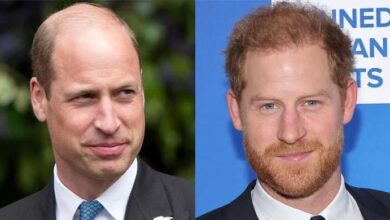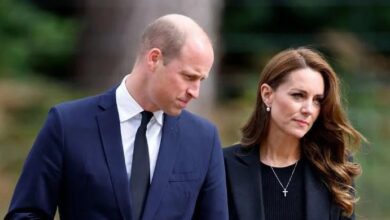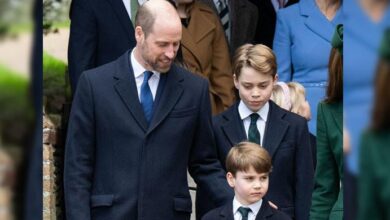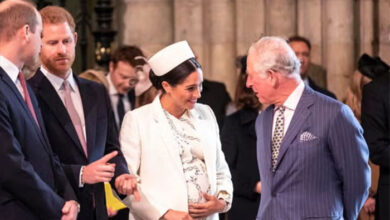Queen Elizabeth’s Private Fears About Prince William’s Future as King Finally Revealed
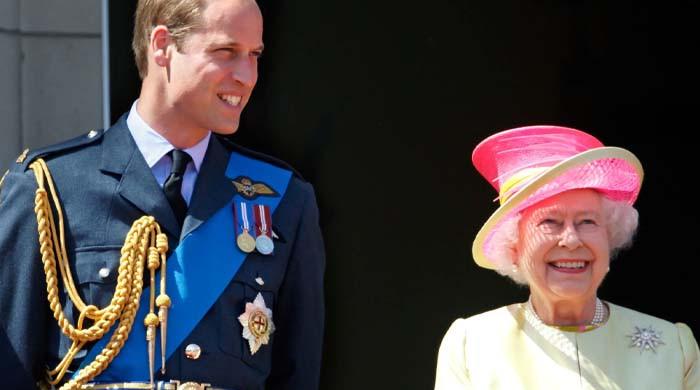
The late Queen Elizabeth II reportedly harbored concerns about her grandson, Prince William’s future as a monarch. Despite her deep affection for him, she worried that William might prioritize fame and celebrity status over dedicated service, which could impact the legacy of the monarchy.
According to renowned royal biographer Robert Jobson, these fears are outlined in his upcoming book, The Windsor Legacy. He explores Queen Elizabeth’s final reflections, shedding light on her thoughts about the evolving role of the monarchy and her successors.
In his account, Jobson quotes insiders who reveal that Queen Elizabeth loved William and admired his qualities, yet she expressed apprehension about his potential to become a “celebrity monarch.” This term reflects the concern that William might seek personal fame more than fulfilling royal duties.
An illustrative incident highlights her concerns further. Queen Elizabeth once asked Prince William to stand in for her at a royal engagement, but he declined due to family commitments. The Queen reportedly scoffed and remarked, “Isn’t that what nannies and policemen are for?” indicating her conviction that royal duty should be a matter of commitment, not convenience.
A royal aide shared insights, indicating that the Queen adored William but was wary of his approach to royal responsibilities. She believed that treating royal duty as a fixed schedule rather than a lifelong calling could undermine the essence of monarchy.
The palace source added that Queen Elizabeth often expressed her worry that the monarchy might shift focus towards appearances instead of genuine service. Her concerns reflected her lifelong dedication to upholding the institution’s integrity and purpose.
Despite her fears, the Queen’s relationship with William remained strong, and she saw potential in him. Her reflections serve as a reminder of the delicate balance between modern celebrity culture and traditional monarchy.
Queen Elizabeth passed away peacefully at the age of 96 on September 8, 2022, leaving behind an enduring legacy. Her death marked the end of an era and heightened interest in her fears and hopes for her successors.
Read More: Prince William’s Silent Fury And Truth Behind Andrew Mountbatten’s Rude Remarks About Kate Middleton
Prince William, now the Prince of Wales, is seen as a key figure in continuing her legacy. His actions and approach to royal duties are often scrutinized for signs of the qualities her late grandmother valued.
Many speculate that William is aware of the expectations placed on him, especially concerning public image and duty. His leadership style may well be influenced by Queen Elizabeth’s warnings about focusing on service over fame.
The fears expressed by the Queen reflect broader debates about the role of modern monarchy in an age dominated by social media and celebrity culture. Balancing tradition with contemporary expectations remains a challenge for the royal family.
In the end, Queen Elizabeth’s concerns underscore her commitment to preserving the dignity and purpose of the monarchy. Her reflections serve as guidance for the future custodians of her legacy.
As Prince William and future monarchs prepare to assume heightened responsibilities, their ability to embody constancy and service will likely determine how well they honor her vision. The Queen’s fears might serve as lessons for them as they lead in a changing world.
Her life and legacy continue to influence the royal family and the public’s understanding of monarchy’s evolving role. The question of celebrity versus service remains central to the royal narrative moving forward.
Queen Elizabeth’s passing leaves a lasting impression of her deep thoughts about the monarchy’s future. Her concerns about William’s potential to be a “celebrity monarch” highlight the ongoing tension between modernity and tradition in royal governance.


